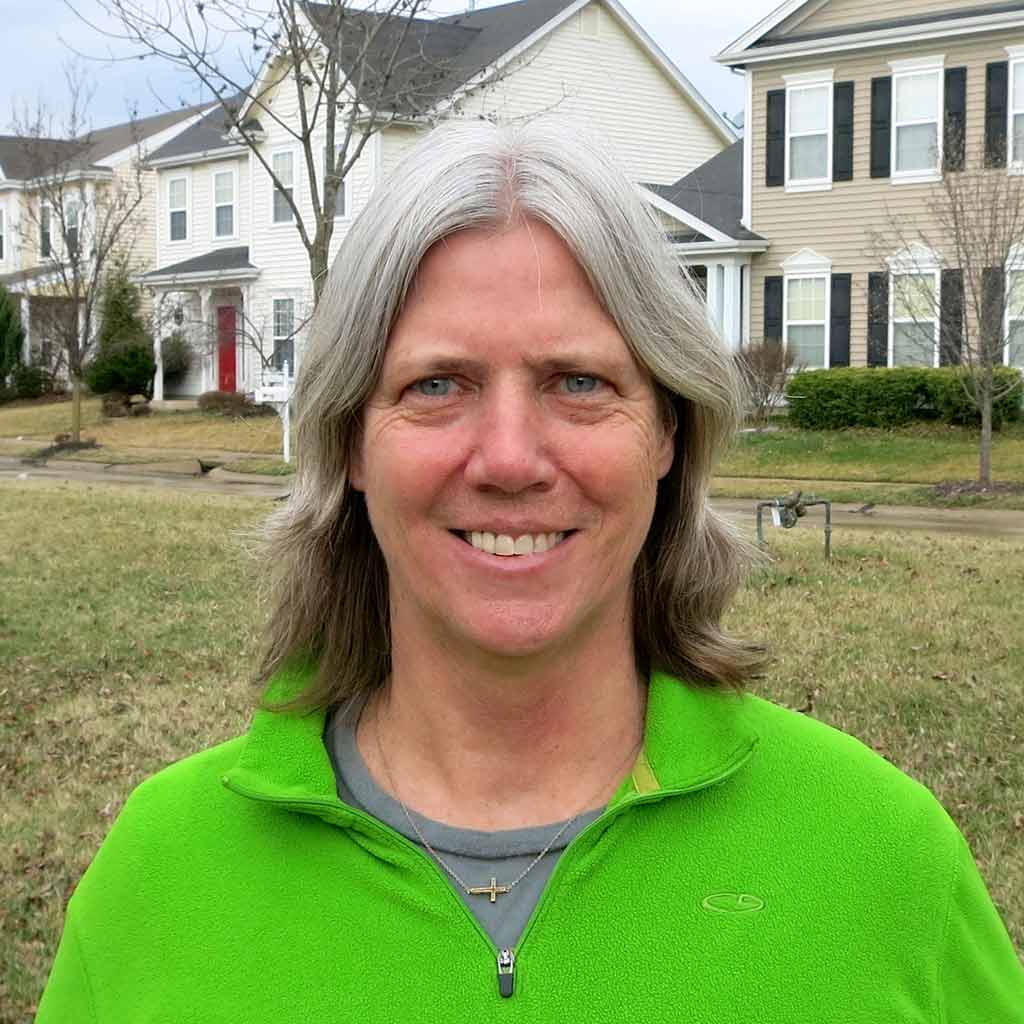
I wanted life after college and wanted to find a career. I had a sales background and thought banking would be fun. But then I started thinking, “No this is not what I want to do.” It is like lighting a fire in the darkness. I realized, “I can make a difference. I can be a caregiver.”
1. What led you to the mission of being a Good Samaritan caregiver?
All my life I’ve gotten great satisfaction out of helping people. When I was little, people would ask me what I wanted to be. I thought maybe a nurse or a teacher or lecturer who would share a good message. I love sharing.
The Good Samaritan evolved when I was on a flight home in 2006. I thought, “It is time for me to put this idea into practice in a practical way.” 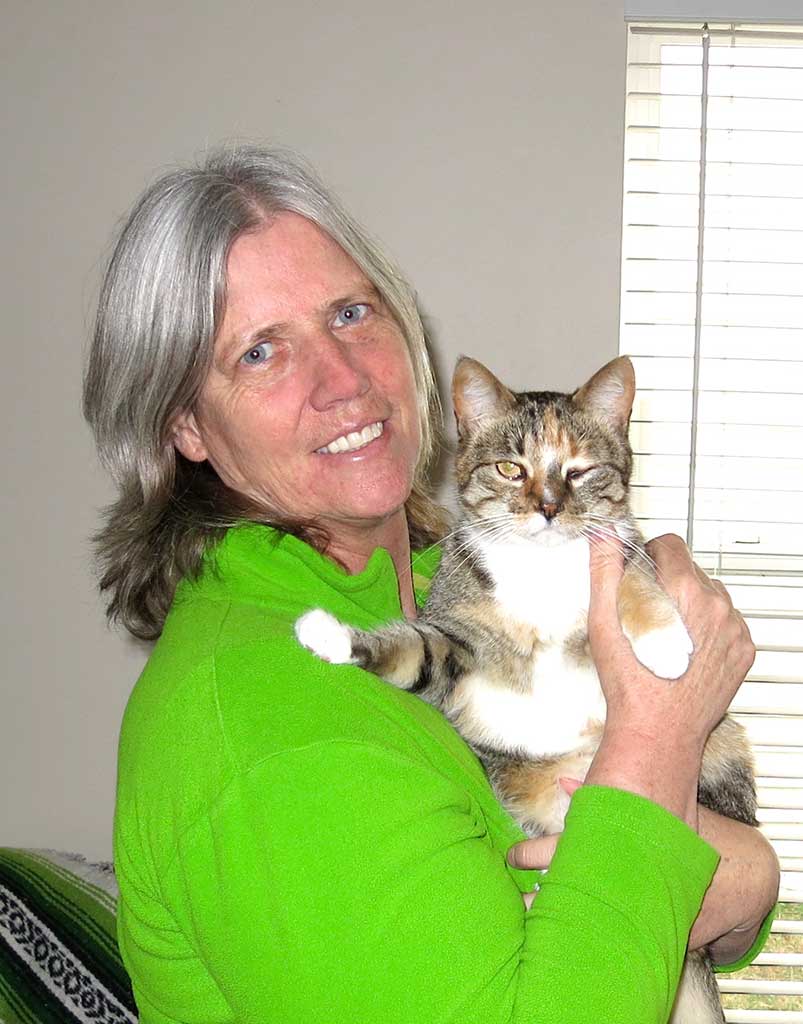 The idea of the Good Samaritan came to me from a story in the Bible. This is a story about people who stepped by a problem — except for one person. I am like that person. When I see a problem, I own it. If I see a piece of trash along the way, I’m going to pick it up. If I see a situation, I want to make it better. I want to help. If I see someone working and see that they are doing a great job, I try to put a smile on their face and say something like, “Wow. You are doing a great job. Thank you so much for what you are doing. You are really making a big difference.” I’ve been that kind of person – to cheer people on and encourage people and to give them a sense of self worth. That has enabled me to give in the capacity of a caregiver starting from when I was in college.
The idea of the Good Samaritan came to me from a story in the Bible. This is a story about people who stepped by a problem — except for one person. I am like that person. When I see a problem, I own it. If I see a piece of trash along the way, I’m going to pick it up. If I see a situation, I want to make it better. I want to help. If I see someone working and see that they are doing a great job, I try to put a smile on their face and say something like, “Wow. You are doing a great job. Thank you so much for what you are doing. You are really making a big difference.” I’ve been that kind of person – to cheer people on and encourage people and to give them a sense of self worth. That has enabled me to give in the capacity of a caregiver starting from when I was in college.
An international student was working in a nursing home. He told me that they were really looking for help. I was still in college. I wanted life after college and wanted to find a career. I had a sales background and thought banking would be fun. But then I started thinking that, “No this is not what I want to do.” I spent some time at a nursing home and as I was leaving there I was saying “Good bye,” to all the guests there and they all expressed so much gratitude. That lit the fire inside me. It was like trying to get a car started. It is a big bolt of energy. It is like lighting a fire in the darkness. I realized, “I can make a difference. I can be a caregiver. I can care for people.
I have devoted my life that that. I started a nurses’ aid class and I found my life’s mission. It is just so great to nourish and comfort and to heal. I can be an example and I wanted to stay in the healing arts. As I did that, that’s where I got my satisfaction and met my need for a mission as a Good Samaritan
The Good Samaritan is a story in the Bible, Luke 10 verses 25 through 37. A man named Jesus is talking and another man asks him, “Who is my neighbor?” In answer to that Jesus gives a parable or story: There was a man who was left by the side of the road. Thieves had attacked him. He was unclothed and left for dead. He looked like a corpse on the road. First a priest passed by. When the priest saw him he decided to go to the other side of the road so he wouldn’t have to see it close up. He ignored the problem. He said, “It’s not my problem. I didn’t do this. Somebody else can take care of him.”
Then a Levite came by. He saw the man and said, “Well, there is really not much I can do here.” He looked at him but also passed by. Both the priest and Levite took the “it’s not my problem approach. Someone else will take care of it.”
But then a Samaritan came by. 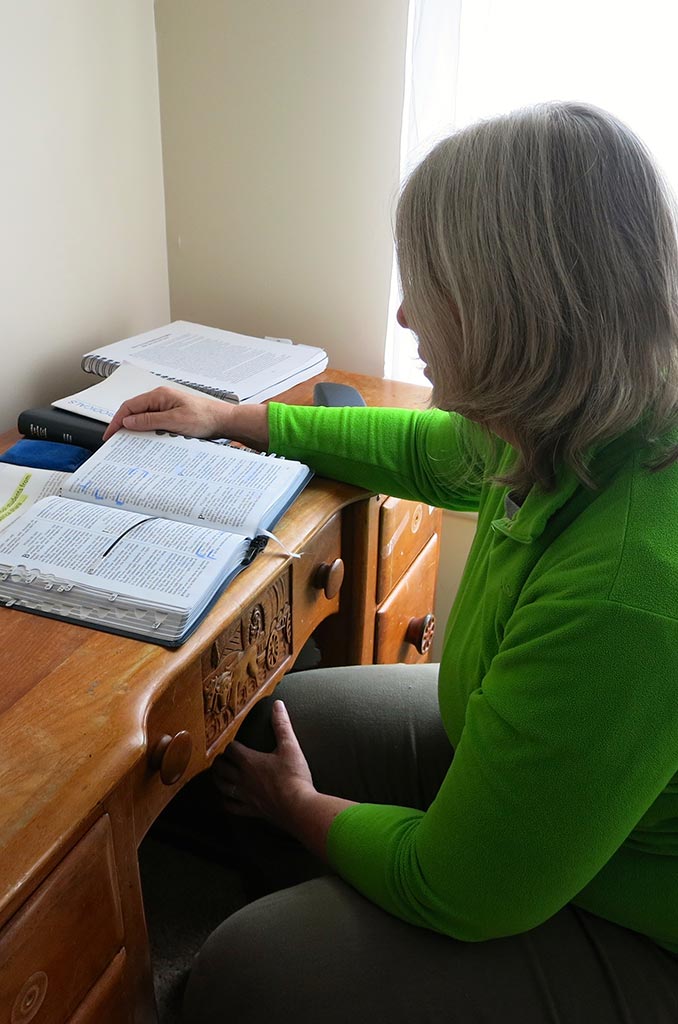 Samaritans were enemies with the priests and Levites. They were like the Hatfields and the McCoys. The Samaritan came by and got off his donkey. He stopped and he actually took care of the man. He washed his wounds. He bound them. He put the man on his donkey and walked to the nearest inn. He offered not only to pay for his care but anything extra that needed to be done for the injured man. He told the innkeeper, “I will repay you.” So he took on the total moral, financial and physical healing of this person. He said, “It is my responsibility even though we are considered enemies. This is a human being.” He was a humanitarian. He is the one that was good. That’s why they called him a “Good” Samaritan.
Samaritans were enemies with the priests and Levites. They were like the Hatfields and the McCoys. The Samaritan came by and got off his donkey. He stopped and he actually took care of the man. He washed his wounds. He bound them. He put the man on his donkey and walked to the nearest inn. He offered not only to pay for his care but anything extra that needed to be done for the injured man. He told the innkeeper, “I will repay you.” So he took on the total moral, financial and physical healing of this person. He said, “It is my responsibility even though we are considered enemies. This is a human being.” He was a humanitarian. He is the one that was good. That’s why they called him a “Good” Samaritan.
That’s why I feel that in my practice as a Good Samaritan caregiver, my three main duties are to provide loving care, transportation, and companionship – just like the Good Samaritan in the parable. If someone needs a friend they can give me a call. If they need a ride somewhere, they can give me a call. If they need physical or emotional or mental or spiritual light in their life, then that’s the kind of service I provide. I’m there in need.
I’ve worked for at home care providers. I prepare meals and do light housekeeping, personal care, errand running, listening to concerns, and getting to know the person. I take a “best friends” approach.
When I was working with people with Alzheimer’s disease I realized that they have a different perception of reality. I loved working with them because wherever they were they live right that very minute, right in the now, right in the moment and I can meet them there. Nothing else matters than the moment. That is what gets in the way of so many people’s progress and self esteem. They look at the past and think about all the mistakes they have made and they regret it. They look at the future and wonder, “What’s it going to be like? Will I have enough?” There is fear of the future. Bu all you have is the present. Have you heard the saying, “You know why they call the present ‘the present’? Because it is a gift.”
2. What does this mission mean to you?
It means that I am going to meet that person where they are. I’m going to provide them with whatever care they need. Like if it is mobility or vision or faculty because they can’t quite see as well, I can read to them or read things for them. I want to be infinitely compassionate.
Empathy is really important. I ask myself, “What is it like to be there?” I realize that it is important to let people know that they are not alone and they have someone to talk to and they are loved the way they are. That’s the ultimate gift you can give anyone. I want to help as many people as I can to feel loved and cared for just as they are.
3. What was your best day being a Good Samaritan caregiver?
My husband was ill and on hospice. The hospice nurse had come in and was taking care of him. The family was visiting and our four daughters were there. The sun was there. 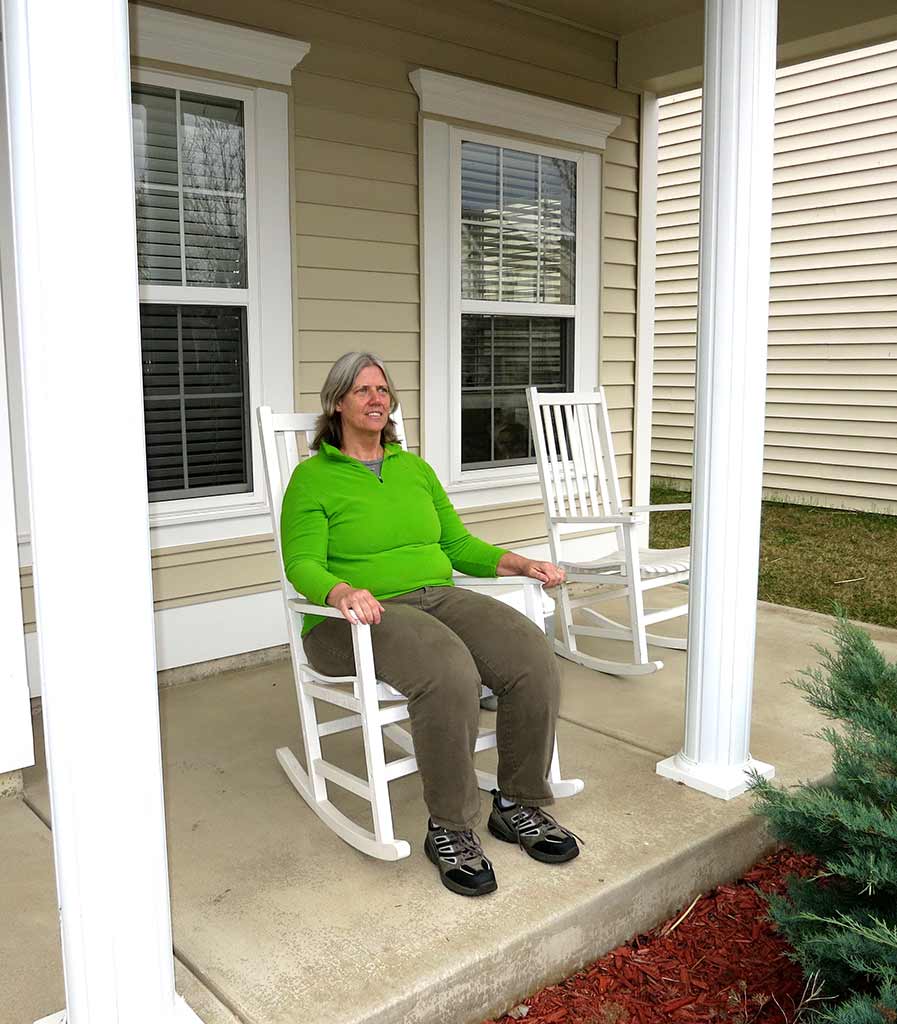 Just to see the man that I had known for twenty years getting the best care I could give for him – was to see him the way that God sees Him as his beloved child with no mistakes, no regrets, just unconditional love. That love went to him. It freed me from being responsible for his future and his existence. I realized that he was not there because of me and I’m not here because of him. We were partners in life. That was the day that I could let go of him as a husband, as a friend, as a lover. I could give him to God. I could give him to his creator and say, “You know you are going to be OK. I’m going to be OK. The girls are going to be OK – our four daughters are doing to be OK. Life will go on.” This was the day that my husband passed away.
Just to see the man that I had known for twenty years getting the best care I could give for him – was to see him the way that God sees Him as his beloved child with no mistakes, no regrets, just unconditional love. That love went to him. It freed me from being responsible for his future and his existence. I realized that he was not there because of me and I’m not here because of him. We were partners in life. That was the day that I could let go of him as a husband, as a friend, as a lover. I could give him to God. I could give him to his creator and say, “You know you are going to be OK. I’m going to be OK. The girls are going to be OK – our four daughters are doing to be OK. Life will go on.” This was the day that my husband passed away.
He was fifty-seven years old. In January he felt like he couldn’t feed himself. He was in a lot of pain. His employer required him to go to a physician. He went to the ER and was diagnosed with a blood disorder. It caused liver and lung cancer. There was nothing they could do so he went from four days in the hospital to be given a three to six month prognosis. He lived five weeks. I was his caregiver. I saw him take his last breath. It was important for me to let go from one person to another. This was an important part of the grieving process that I gave him permission to move forward.
I had to let him know that he didn’t need to stay here to take care of the children or me. He could move on. My kids were four, seven, ten and thirteen. As a Good Samaritan, I’ve been there. I’ve had someone I loved and wanted care for. I’ve experienced what it is to lose a loved one. I know it is not easy. But what I would like to do is to be the one to say, “You are going to get through this. There is a light at the end of the tunnel. There is a tomorrow.”
4. What was your worst day being a Good Samaritan caregiver?
My worst day is more of a personal level than a day. Several things have happened that brought me to a worst level. One of them is that I had been taking care of a woman for three years. There became a communication rift with one of her daughters. It led me to not being able to take care of this woman any more. The family was very loving about it but it was hard because I left this job and I wasn’t able to see this woman any more.
Then I was taking care of people who had dementia or memory loss or physical problems. It was so hard emotionally to deal with it all. I was getting into the “sinking ship” mentality – like we were all on the Titanic sinking.
Just before I started working at this place, I had been working with a person who passed away. The hospice nurse was staying in communication during that time. The daughter was there. I kept thinking there was more that I could do. Just before I was supposed to leave for the day, the person passed on.
The best days are when I make a difference and see someone going forward and making progress and moving on with their life. Probably the worst days are when they don’t seem to be making progress. So it isn’t a worst day but a worst level of feeling.
5. How did you survive your worst day?
It is important that I forgive myself and not blame myself and have faith that there is another person out there needing to be helped. 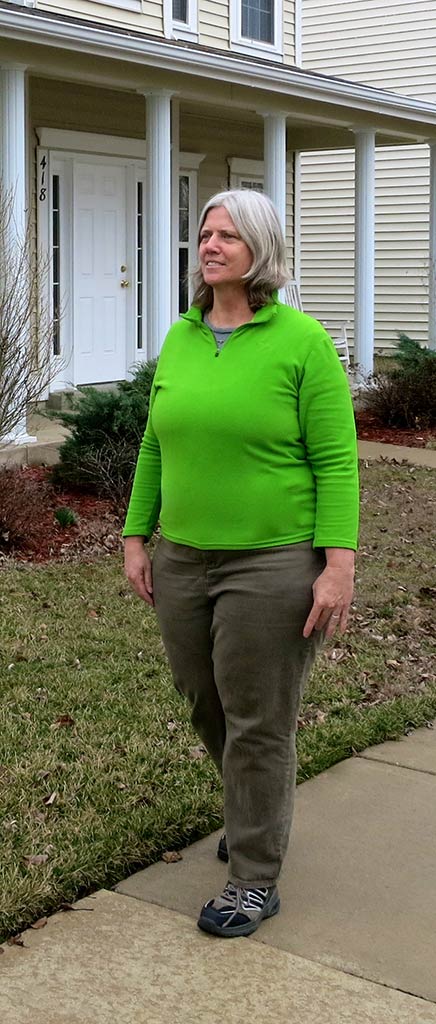 It is like in the movie the Guardian, the senior or veteran rescuer is teaching this young kid who is trying to break all these records and be the best. He is ready to quit when things start happening. He asks the senior rescuer, “How do you know who to save first? How do you know who lives or dies? How do you decide?” He says, “I jump in the water and I swim as fast as I can. The first person I meet, I do what I can for them and I move on to the next.” This is a real life story of the Coast Guard.
It is like in the movie the Guardian, the senior or veteran rescuer is teaching this young kid who is trying to break all these records and be the best. He is ready to quit when things start happening. He asks the senior rescuer, “How do you know who to save first? How do you know who lives or dies? How do you decide?” He says, “I jump in the water and I swim as fast as I can. The first person I meet, I do what I can for them and I move on to the next.” This is a real life story of the Coast Guard.
The reason I can make it though my worst days is because I’d like to help people make it through their worst days. I’d like to be their rescuer in the sense that I am the one saying, “I know it looks pretty dark here but there is light. The light is that I am here to help. You have other friends. You are not alone. Whatever you need, have a little faith, have trust, have confidence that you are going to learn lessons. It might not end up the way you want it but many lessons will be learned and you’ll be a better person for it.”
6. What advice do you have for someone who would like to get into this field?
I tried doing caregiving on my own. I found it so much easier to go to an established franchise. There are so many jobs in the home health care field. That is my niche. You can offer to work for someone else. You can find a place that will put you in and out of situations that you feel comfortable with. That is what I finally found at the place I was more recently at. They would ask, “How are you doing? We are going to try this.” They held my hand and said, “We believe in you. You have so much experience as a caregiver. I can tell you care.”
Don’t be afraid to be a “dummy”. I don’t know all the answers but someone else does. You say, “Let’s together try and find out what will help your loved one and what will help you most have progress and healing and move forward and lead a wonderful productive life.”
I have heard that people don’t care how much you know until they know how much you care. That can be your mantra or motive in caring for others to show them how much you care. You may not have the answers but you can say, “I don’t know but I’ll see what I can do to find out.”
- « Previous person: Howard Sheets
- » Next person: Joyce Spann